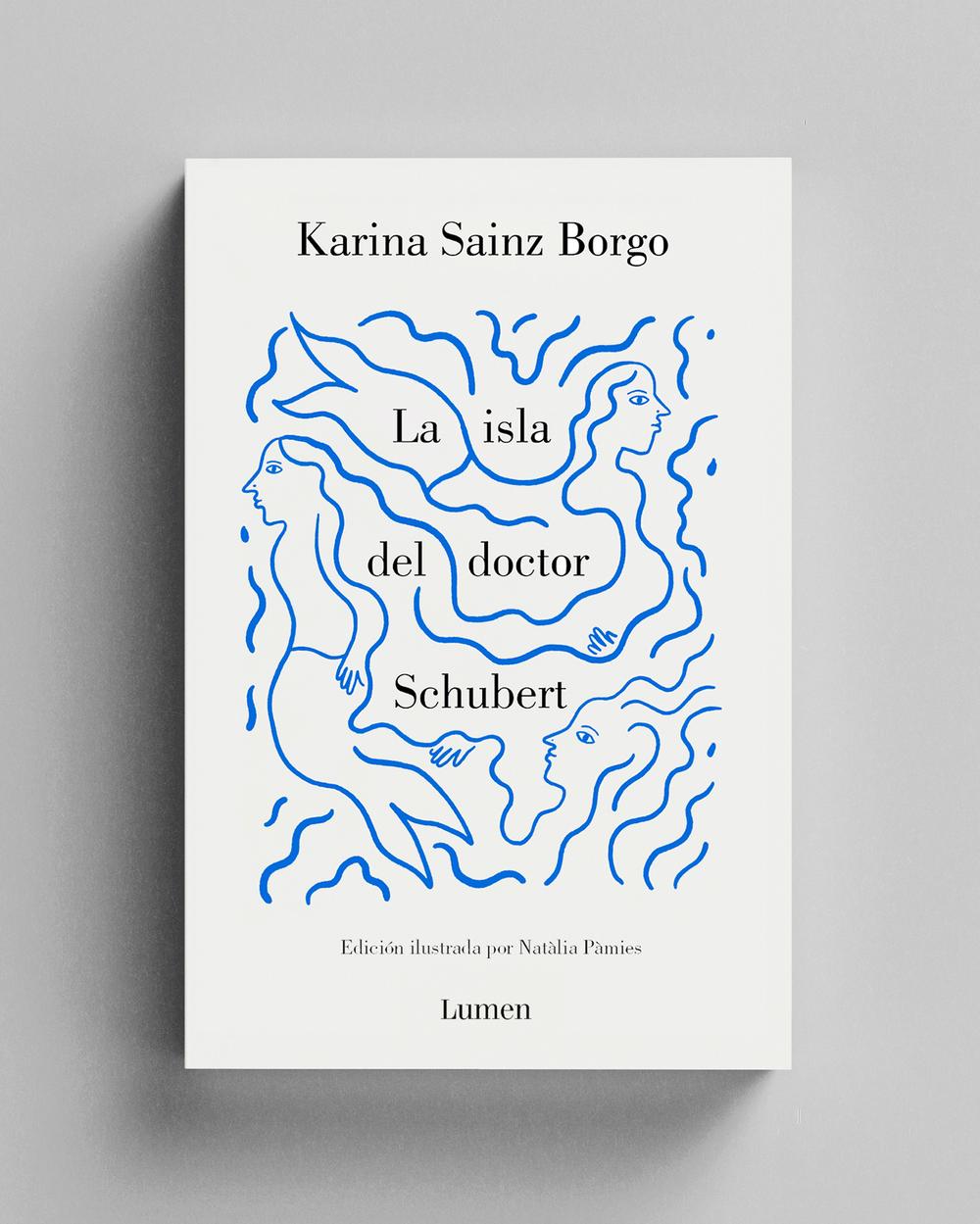illustrated by Natàlia Pàmies
Do we have to compare the writer’s style with that of others? One can say It’s tempting to say I was about to say that Karina Sainz Borgo writes as concisely as Borges and as poetically as Márquez... But no, that would be denying the author her own style. I don’t know how proficient she is in Dragon but sometimes she writes in what must be close to the tongue of true mages, in Le Guin’s sense*. I say “sometimes”, for the book published entirely in that language won’t be readable by most humans. Sainz Borgo is well aware of it. In fact, this novel (novella, fable, chronicle, whatever you call it) refers to another book called La isla del doctor Schubert, the real one:
La intérprete dejó por escrito la vida del navegante educado por un centauro, el último secesionista berlinés, expedicionario y cirujano que zarpó sin argonautas de un portal de la calle Lagasca. Encuadernada en silencio, La isla del doctor Schubert es la bitácora de un paraíso... para quienes consiguen soportarlo. Sus páginas están escritas contra el viento, y si los renglones a veces se quiebran es porque la prosa se marea cuando alguien la recita en tacones.
So it is not magical realism: it is magic, with no need for realism whatsoever†. Doctor Schubert himself, ex-surgeon of the Kaiser, appears to be a nice guy, a powerful if a bit absent-minded wizard à la Magician from An Ordinary Miracle. And the story of two Juanas is a pure genius.
La isla del doctor Schubert is not especially difficult reading but it is intense. It took me about a month to finish the book — every evening I could read no more than one chapter. That’s magic for you. Be warned.

Al tercer día de su llegada a la capital alemana, el doctor Schubert halló una nota manuscrita en su buzón que alertaba sobre la desaparición del retrato que pudo pasar por un Modigliani. Cuando subió para comprobar si era cierto lo que afirmaba ese papel, encontró un trozo de pared limpia que señalaba su ausencia. Desorientado y confuso, convocó al jurado de la Secesión, pero todos habían muerto tras su última visita.
Tras sorber la primera cucharada, los hombres más fuertes de la isla se desplomaron como naipes. Despertaron confusos, con la mente en blanco. El bebedizo había borrado los tatuajes y las arrugas que surcaban sus pieles e hizo retroceder sus recuerdos. Con el paso de las semanas, perdieron los dientes cubiertos de sarro y en su lugar renacieron otros de leche. De su rostro áspero y barbudo una piel lisa e inédita. El doctor Schubert intentó perfeccionar su receta durante treinta cenas más.
El doctor Schubert suele perdonar la vida a los pasajeros de los barcos de recreo: criaturas alimentadas con col agria que una vez al año viajan por el mundo convirtiéndolo en un lugar peor. Justamente porque jamás aprenden de sus errores, quiso diseñar para ellos un castigo ejemplar, pero le fallaba la concentración.
| * | Speaking of dragons: I didn’t know until now that there are only two surviving artifacts featuring the phrase “hic svnt dracones”. Apparently, mediaeval cartographers preferred more reasonable if a tad pedestrian “hic svnt leones”. Another day, another bit of knowledge. In any case, dragons were not the top of Doctor Schubert’s concerns. |
| † | “The dragons do not dream. They are dreams. They do not work magic: it is their substance, their being. They do not do; they are.” — Ursula K. Le Guin, The Farthest Shore. |






No comments:
Post a Comment